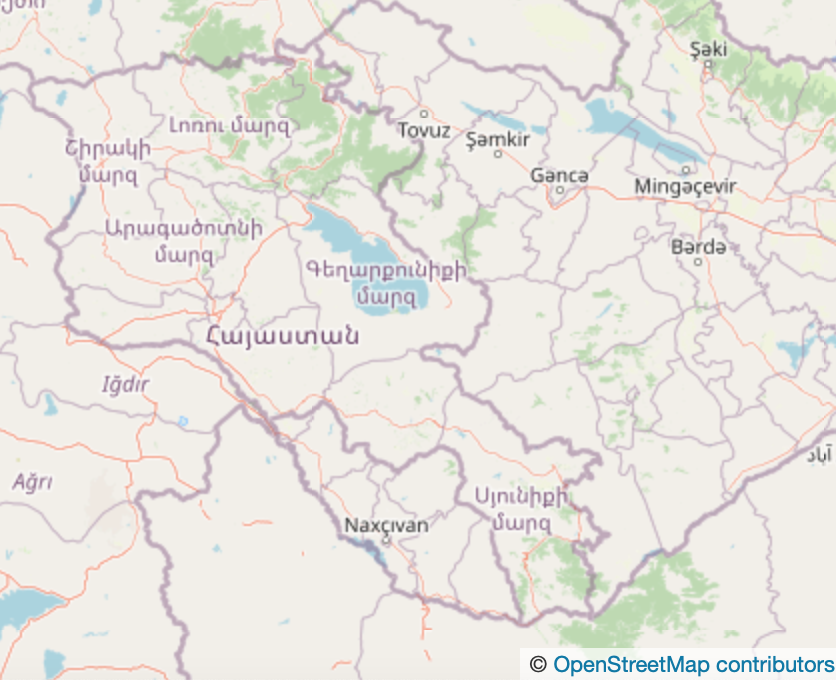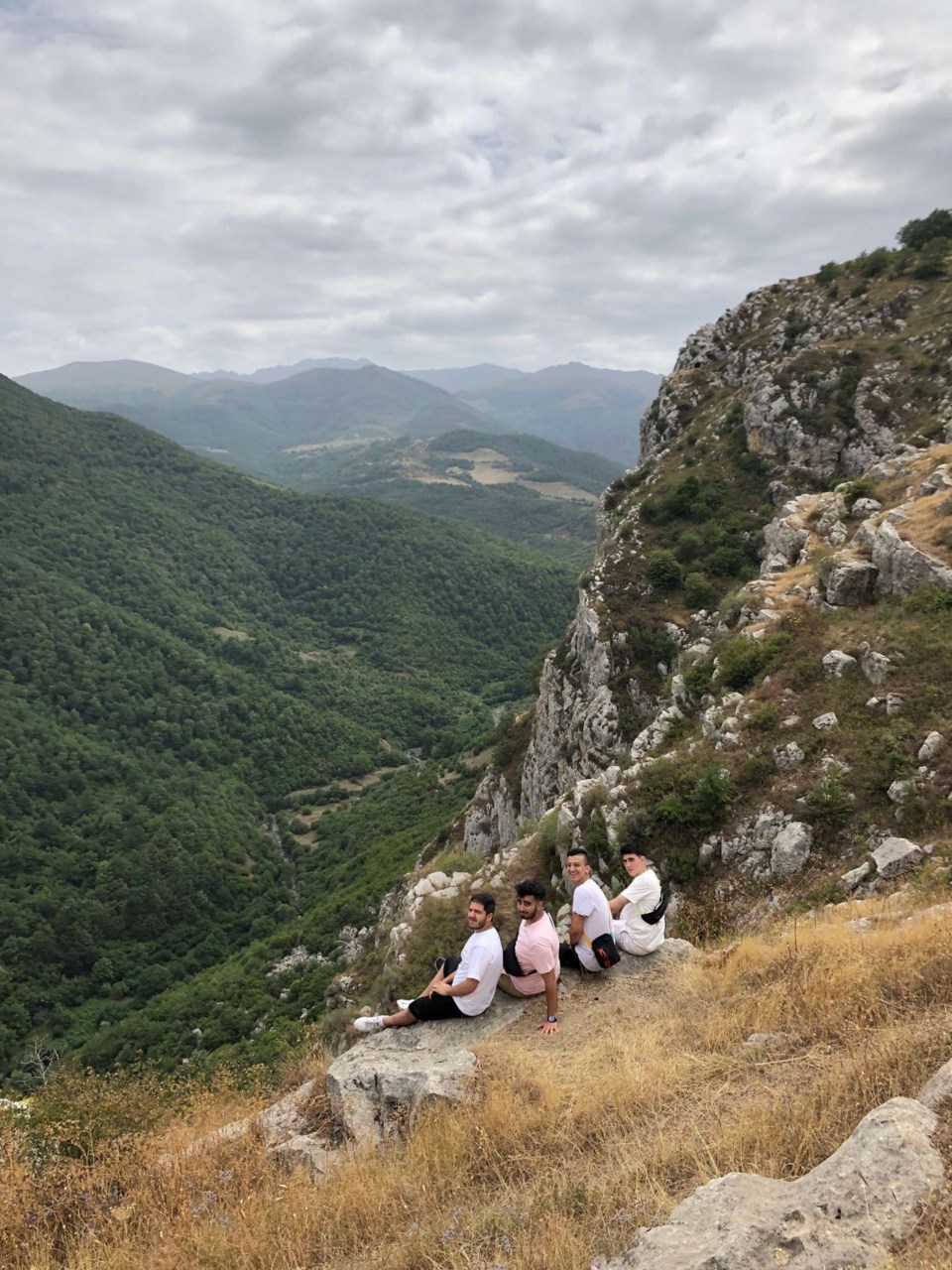While 2020 has been a year of trouble for most of the world, for 22-year-old Arman Ghaloosian, the contrast with 2019 couldn’t be greater. Last summer, on break from the University of Toronto where he was a student, Ghaloosian took advantage of a period of political stability and prosperity to visit his ancestral homeland, Armenia, the former Soviet republic and nascent democracy of fewer than three million inhabitants high in the Caucasus mountains.

Along with friends in the local Armenian community, he formed a soccer team to participate in the Pan-Armenian Games, an experience that allowed them to connect with Armenian youth from around the world.
“There were people from everywhere: Egypt, Uruguay, Iran and Iraq,” Ghaloosian says. “I met so many people, some people who had never even been to Armenia. We visited all the sites and took pictures. It was a very inspiring trip.”
A little over a year later, the town where the opening ceremonies were held and the verdant mountains where he hiked have become burning landscapes traumatized by a short but brutal war between Armenia and its larger, more powerful neighbour Azerbaijan. Now video footage show refugees carting away what they can carry, abandoning their homes and villages as winter approaches. Armenian troops are withdrawing in accordance with the terms of the Russian-brokered cease fire signed between the two sides November 10. Armenia’s demoralizing defeat ends six weeks of fighting over control of the majority Armenian breakaway state that called itself the Republic of Artsakh, or Nagarno-Karabakh.
Like other members of the Armenian diaspora in Oakville, Ghaloosian is channelling his grief over recent events abroad into activism and aid projects locally. Friends and family members have been gathering winter coats, boots and medical equipment destined to help Armenian refugees now streaming out of the conflict zone. His sister Ani, 19, is postering their Oakville neighbourhood with homemade signs hoping to draw Canadian attention to the war atrocities.
“In this conflict, money talks,” Ghaloosian reflects bitterly. “Good faith and justice and human rights did not prevail. We’re pretty disappointed and worried there will be a complete erasure of our presence in this territory. It’s a people who want to live on their lands, and pray on their indigenous lands, peacefully, and vote in their elections.”
On October 3, Ghaloosian joined members of the Armenian Youth Federation’s Toronto chapter in a vehicle convoy protest from Toronto to the Burlington company L3Harris Wescam, the Burlington company that manufactures the high tech targeting sensors used in Turkish drones. Azerbaijan’s liberal use of the high tech drones gave it a critical advantage in an already asymmetrical war, allowing it to defeat Armenia from defensive mountainous locations as quickly as it did.
Protest organizer Garo Kelebozian, 25, says some 40 protestors were able to converge on the grounds and have conversations with several employees before they got kicked off the property. They continued their protest on the sidewalk outside, waving at cars. Some of the drivers pulled over to speak with protestors and hear what the commotion was about. “A lot of people were shocked a Canadian company would be involved in such a thing," Kelebozian says. "We got to educate some people around L3Harris around what is going on. Even some of the workers who probably don’t know what’s happening.”
For his part, Oakville accountant Robert Kheir, 48, with other members of the Armenian Business Network of Halton-Peel, wrote a letter to the manufacturer October 30 asking it to recognize the humanitarian crisis its products are contributing to, and ask for a $100,000 donation to a registered charity Hayastan Foundation Toronto Inc. in compensation. They have not heard back.
“On their website, they say they are putting people before profits,” Kheir says. “And yet here we have a company, right in our backyard, shipping military equipment to (Turkey), a NATO ally that is selling them to Azerbaijan -- a dictatorship.”
Although Canada banned the sale of military equipment to Turkey last year, the Globe and Mail reported that L3Harris received export permits to ship seven MX-15D imaging and targeting systems to Turkish drone maker Baykar. L3Harris Wescam did not immediately respond to a request for comment.
“Armenians tend to have a strong tie back to our homeland,” Kheir says. “The country has has had such a depressing history, going back to the Armenian Genocide in 1915 that is a such a scar on the hearts of many Armenians. When something like this happens, it brings back those memories. We’re a close knit community and there’s been a groundswell of activity to do what we can to help.”
Kheir articulates the sentiments of many in the community -- a painful sense of abandonment by the international community. “Canada said a few words, the US said a few words, the EU said a few words,” Kheir says. “Those were only words. No one stood up. That’s where a lot of Armenians are hurt. Despite the fact the international community did speak up, they didn’t do anything.”
